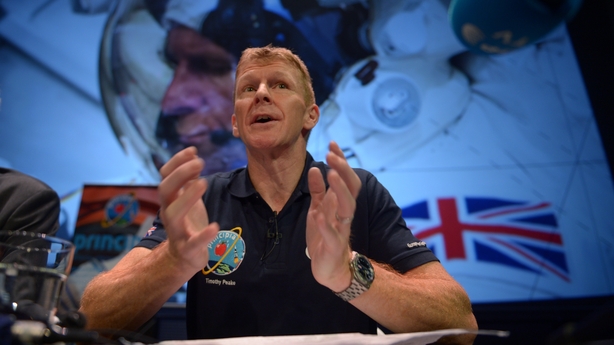Britain's first official European Space Agency astronaut hopes the legacy of his mission will be to inspire a new generation to enter a career linked to space exploration.
On 15 December, 43-year-old Tim Peake will embark on a six-month stint on the International Space Station, leaving Earth on a Russian Soyuz rocket.
At his final pre-flight press conference at the Science Museum in London, the former military test pilot spoke highly of his rigorous training, and insisted he was only nervous about forgetting something.
Mr Peake said: "On launch day, of course there's going to be some apprehension."
"You're sat on top of 300 tonnes of fuel and you're basically just going to be focused on the mission and what's to come.
"It's important to say goodbye to friends and family and just draw a line and really focus on the mission ahead."

He will not only take part in a series of experiments - some calling on him to become a "guinea pig" to research asthma, the immune system and the ageing process - but engage with the public through social media.
UK Minister for Universities and Science Jo Johnson said it was a truly proud moment for the UK and he added that the Government was eager to fully exploit the potential education benefits.
He said: "This is our moonshot moment as a country."
Mr Peake will follow in the footsteps of Briton Helen Sharman, who travelled to space in 1991 on a privately-funded venture.
And his advice to aspiring astronauts is simple: "You have to just take every step as it comes, and you have to do what you're passionate about and what you want to do."
He believes there had been a decline in interest in the key industries from youngsters because of the lack of visible human space-flight programs.
He added: "I left school at 18 and decided to become a pilot. Many people may have said at the time that was a bad choice - that you should be going to university, you should be getting a higher education."
"For me, it worked out great - it was what I wanted to do, it was what I was passionate about - and I was able to get a degree later in life."
"Sometimes, your career takes you through various different paths and you're not quite sure where you're going to end up."

